You're suffering from hair loss. It can be very frustrating. Luckily you have decided to find a healthy solution to the issue. Learn about the vitamins that your hair needs and discover the foods that you should add to your diet to get them. Your whole body will thank you - including your hair.
Premature hair loss has become a major problem around the world. This could be because of a lack of exercise, stress or a bad diet. In this particular article we look at the food that you should eat to enrich your hair follicles with the nutrients that they need to grow at their best.
5 Best Vitamins for Hair Growth
You can try these five vitamins and include all of them in your diet in balanced amounts. That’s the best way to get the benefits from each of them.
1. Vitamin A
Hair cells need Vitamin A for their growth. Your hair benefits from Vitamin A because it moisturizes the scalp. Vitamin A contributes to the production of sebum (an oily substance) in the skin glands.
It’s a good choice to add Vitamin A to your diet in the form of healthy food choices. Here are some great food sources that you can try.
Foods rich in Vitamin A
Fruit rich in Vitamin A
Watermelon, mango, orange, papaya, apricot, guava, litchi, cherry, grape, strawberry
Vegetables rich in vitamin A
Carrot, tomato, spinach, cauliflower, cabbage, sweet potato, broccoli
Other foods high in Vitamin A
B vitamins are water soluble. They play a major role in cell metabolism.
Individual B Vitamins differ from each other regarding their structural arrangement - although they exist in similar food components. Diet supplements that contain all these 8 vitamins are called vitamin B complex.
What are the 8 B vitamins?
1. Thiamine (B 1)
2. Riboflavin (B 2)
3. Niacin (B 3)
4. Pantothenic acid (B 5)
5. Pyridoxine (B 6)
6. Biotin (B 7)
7. Folate (B 9)
8. Cobalamin (B 12)
Collectively they are called vitamin B complex. Here's where you can get them:
Foods rich in Vitamin B
Avocado, banana, orange, almonds, apple, black berry, cherry, grapefruit, kiwi, lemon, lime, litchi, mango, melon, peach, pear, pineapple, plum, raspberry, strawberry, watermelon, asparagus, broccoli, chickpeas, Brussels sprouts, carrot, lentils, collards, edamame, green peas, mustard greens, romaine lettuce, spinach, turnip greens, potato, beets, milk, cheese, egg, chicken, read meat, tuna, mackerel, salmon, oysters, clams, nutritional yeast
Fruit rich in Vitamin B
Vegetables high in Vitamin B
Other foods high in Vitamin B
3. Vitamin C
Vitamin C is essential for tissue repair and the enzymatic production of many neurotransmitters.
Oxidative stress from pollutants, metabolism and ageing create free radicals that damage cells - including hair cells. Vitamin C helps to stop these free radicals so that they don't damage cells.
Vitamin C also called as ascorbic acid. It is used use for cleansing purposes in shampoos and it is very effective for the removal of mineral build-up on the surface of hair. This buildup prevents hair from absorbing moisture.
Foods high in Vitamin C
Fruits rich in vitamin C
Citrus fruits and juices like orange and grape fruit, pineapple, papaya, mango, turnip greens, kiwi fruit, watermelon, raspberries, strawberries, cranberries, blueberries, plums, guavas, lemons, litchis
Vegetables rich in vitamin C
Tomato and tomato juice, red and yellow bell peppers, potatoes, turnip greens, spinach, cabbage, other leafy greens, cauliflower, Brussel sprouts, broccoli, kale
Other foods rich in Vitamin C
Chives, coriander, rose hips, hot green chili peppers, thyme and saffron
4. Vitamin D
Vitamin D has a major role in generating new hair follicles. Whenever you feel like your hair’s not growing, it could be because of a lack of Vitamin D.
Bald patches occur on your scalp from Vitamin D deficiency. It’s good to eat more Vitamin D foods for better hair growth.
Foods high in Vitamin D
Fruits rich in vitamin D
No fruits are high in vitamin D. Orange juice is the only food product commonly sold with vitamin D. You need to eat other types of food to get enough Vitamin D.
Vegetables high in Vitamin D
5. Vitamin E
Vitamin E is needed for the growth and maintenance of hair. It provides extra strength to hair follicles. Vitamin E also has antioxidant (prevents damage and degeneration) properties because it resists the harm done by free radicals and provides protection for optimal hair growth.
Vitamin E also helps to increase blood circulation in the scalp, helps to balance oil production and pH levels.
Foods rich in Vitamin E
Fruit, nuts and seeds high in vitamin E
Vegetable sources of Vitamin E
Other food sources of Vitamin E
When you’re losing your hair follicles and you don’t know what to do, you should consult a hair specialist first.
Follow these diet improvements with the five best vitamins that are essential for the health of both your hair and the rest of your body. Add these foods into your daily diet to give your body exactly what it needs for beautiful, strong hair.
Akash Bahuguna
I am fitness enthusiast who believes in giving better life to people by providing them with a way to be fit and healthy. Despite my personal insight, I am a nutrition blogger with a medical background (Bachelor of pharmacy). I share food nutrition facts, ideas, diet and meal plans which are backed with scientific research and evidence.
My site: Nutritionmint.com
Twitter: Nutritionmint
Facebook page: Nutrition-Mint
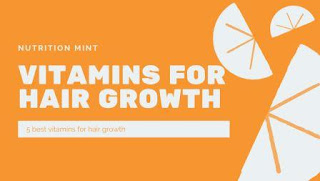
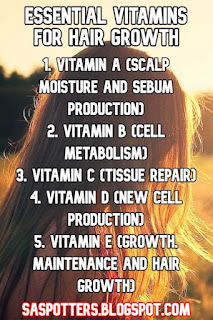
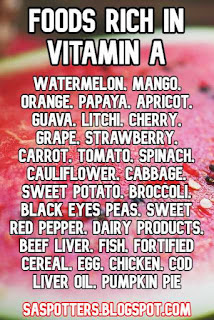


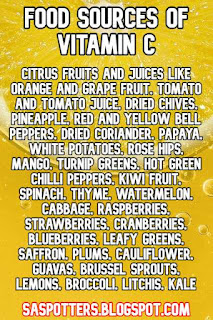

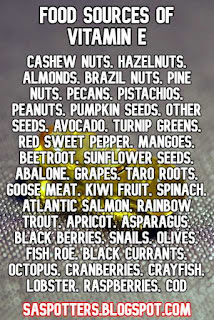
No comments:
Post a Comment